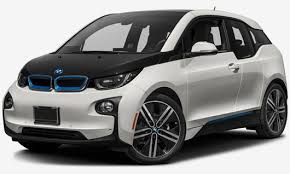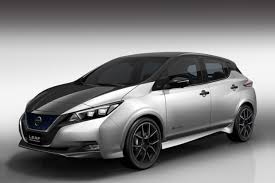World automakers see China as their launching pad for electric vehicles
 This week, some of the world’s largest automobile companies presented their flagship electric vehicles at the Shanghai motor show. Many of these electric cars will only be available in China, where there are government subsidies and policies in favor of electric cars. As the world’s largest car market and manufacturing center, China is becoming the center of electric car development.
This week, some of the world’s largest automobile companies presented their flagship electric vehicles at the Shanghai motor show. Many of these electric cars will only be available in China, where there are government subsidies and policies in favor of electric cars. As the world’s largest car market and manufacturing center, China is becoming the center of electric car development.
On Tuesday, Audi introduced its electric sports crossover Q2L e-tron, which will be produced in the southern city of Foshan and is available only in the domestic market of China. The luxury German brand also launched an electric model for China, presenting it in San Francisco last year as the first production electric model. E-tron will also be produced in China starting from 2020.
As noted by Alexander Zeitz, member of the Board of Directors of Audi Finance in China and legal issues, the largest number of electric vehicles in Audi’s portfolio will be created for China.
According to Zeitz, the company plans to double the staff of the local research center from 300 to 700 people, as the Chinese market is very innovative and fast in terms of electric mobility.
Audi and Volkswagen are also building big plans to promote electric vehicles in the Chinese market within the Shanghai motor show. China will produce more than half of the planned 22 million electric vehicles by 2028.
Volkswagen announced a new line of electric vehicles, which will be available in China from 2021. The first will be a sports electric SUV called I. D. ROOMZZ.
In Shanghai Infiniti presented a sports electric sedan Qs Inspiration. Nissan’s luxury car brand also announced that the first new generation of electric cars will be produced in China for the domestic market.
Toyota, which is not resolute in electrification and promotes hybrid technologies, for the Chinese market introduced electric crossovers based on C-HR: GAC Toyota C-HR and FAW IZOA. For example, Toyota Honda also introduced a new all-electric crossover Honda X-NV.
With all the opportunities that China offers, foreign players are entering an electric car market filled with domestic brands that already have electric cars, not to mention Tesla’s commitment to local production in Shanghai.
Recall, the Chinese electric vehicle industry will face a 50% reduction in government subsidies in June 2019.
Chinese brands at the Shanghai auto show introduced new services and models to create their own ecosystem that will enhance customer loyalty and competitiveness.
Xpeng introduced the electric four-door coupe P7, which is scheduled for delivery in the second quarter of 2020. The new product is already open form for pre-order, although its price is still unknown.
Nio said it will install high-speed supercharges in public places in addition to existing charging stations and chargers for homes and fleets.
Supercharged stands are part of Nio’s efforts to reduce costs, increase services and increase sales. The company stated in its latest income statement that it would not reach its initial plan to install 70 charging stations for Nio House customers by the end of 2019.
Nio charging stations are very efficient and theoretically can serve up to 70 electric vehicles per day, but due to the lack of electric vehicles operating and investment costs are higher than the installation of charging stations.
Nio fast charging station
Nio © fast charging station nio.io
Chinese manufacturers GAC and BAIC have already offered electric cars that travel at least 600 km on a single charge, but the electric car industry is still at an early stage of development, and many questions about consumer demand and charging infrastructure are still relevant.
While global manufacturers are trying to enter the Chinese market, Chinese manufacturers want to sell their products abroad. Shanghai-based company Aiways launched an electric SUV in Europe at the Geneva international motor show in early 2019.



